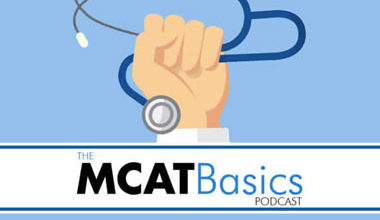Dr. Ali Haider talks about his medical journey, advancements in interventional cardiology, and the role of social media in education.
- [02:01] Why Medicine?
- [05:48] Why Cardiology?
- [08:16] Advancements in Interventional Cardiology Procedures
- [09:54] Qualities of a Good Student
- [15:48] How to Gain Mentorship
- [19:09] The Role of Social Media in Medical Education
- [25:09] Dr. Haider’s Advice to Pre-Meds and Medical Students
Dr. Erkeda DeRouen talks to Dr. Ali Haider, an interventional and structural cardiologist. He is also a medical director of a private practice and an assistant professor at the University of Massachusetts Medical School. Today, Dr. DeRouen chats with Dr. Haider about his medical journey, the advancements in interventional cardiology, and the role of social media in education.
Why Cardiology?
Dr. Haider’s father was a cardiologist. Although he was interested in medicine, he also felt drawn to business, economics, and a few other courses. Before deciding on medicine, he gained exposure to different subjects. Through his exploration, Dr. Haider realized that he enjoyed the sciences the most. This realization started him on his path to become a physician.
Funnily enough, Dr. Haider also ended up specializing in cardiology. As a doctor, he wanted the opportunity to perform procedures and to interact with patients and students. He found that cardiology, and more specifically interventional cardiology, was the best fit for him as it encompassed all of his interests.
Advancements in Interventional Cardiology Procedures
Dr. Haider’s favorite procedure is the transcatheter aortic valve replacement, otherwise known as the TAVR procedure. Heart valve disorders used to require open heart surgery. But since the development of the TAVR procedure, it is now the go-to operation for such cases. It is a lot less invasive but still effective.
What Makes a Good Medical Student?
Excellent students are always present during lectures and rotations. Instead of just going through the motions, show genuine interest. Preceptors do not expect you to know everything so don’t be afraid to ask questions. Invest your time and mind in every learning opportunity. Absorb all the knowledge you possibly can. You never know when lessons and tips will come in handy.
How to Gain Mentorship
Identify your goals and evaluate your knowledge base. Arrive early during rotations and pull the residents aside for a quick conversation. During your meeting, let them know what you’d like to learn from the rotation. Be honest about your objectives and allow them to get to know you. Chances are residents will remember their conversation with you and try to give you more learning opportunities. In this way, you are able gear the rotation towards your goals and interests.
The Role of Social Media in Medical Education
Nowadays, more and more people rely on social media for information. It’s easily accessible and has a widespread reach. Unfortunately, platforms are also full of fake news and inaccuracies. Dr. Haider believes that doctors play an important role in creating educational content. Physicians who share their medical expertise can provide a lot of value not just to students, but to laypersons as well.
Dr. Haider’s Advice to Pre-Meds and Medical Students
To those who are considering medicine, make sure that it’s really what you want. The journey to becoming a physician requires a whole lot of commitment. Map out what your future will look like. You have to be willing to sacrifice things along the way if you choose medicine.
Similarly, medical students should think long and hard about their field of specialization. Your idea of a certain specialty may not always correspond to reality. Try to get experience in the field you’re interested in. Before making a decision, you should get a glimpse into a physician’s daily life. Have conversations with residents and request shadowing experiences.
Follow Dr. Ali Haider on Instagram and Twitter. He also creates bite sized, educational content on his YouTube Channel.

